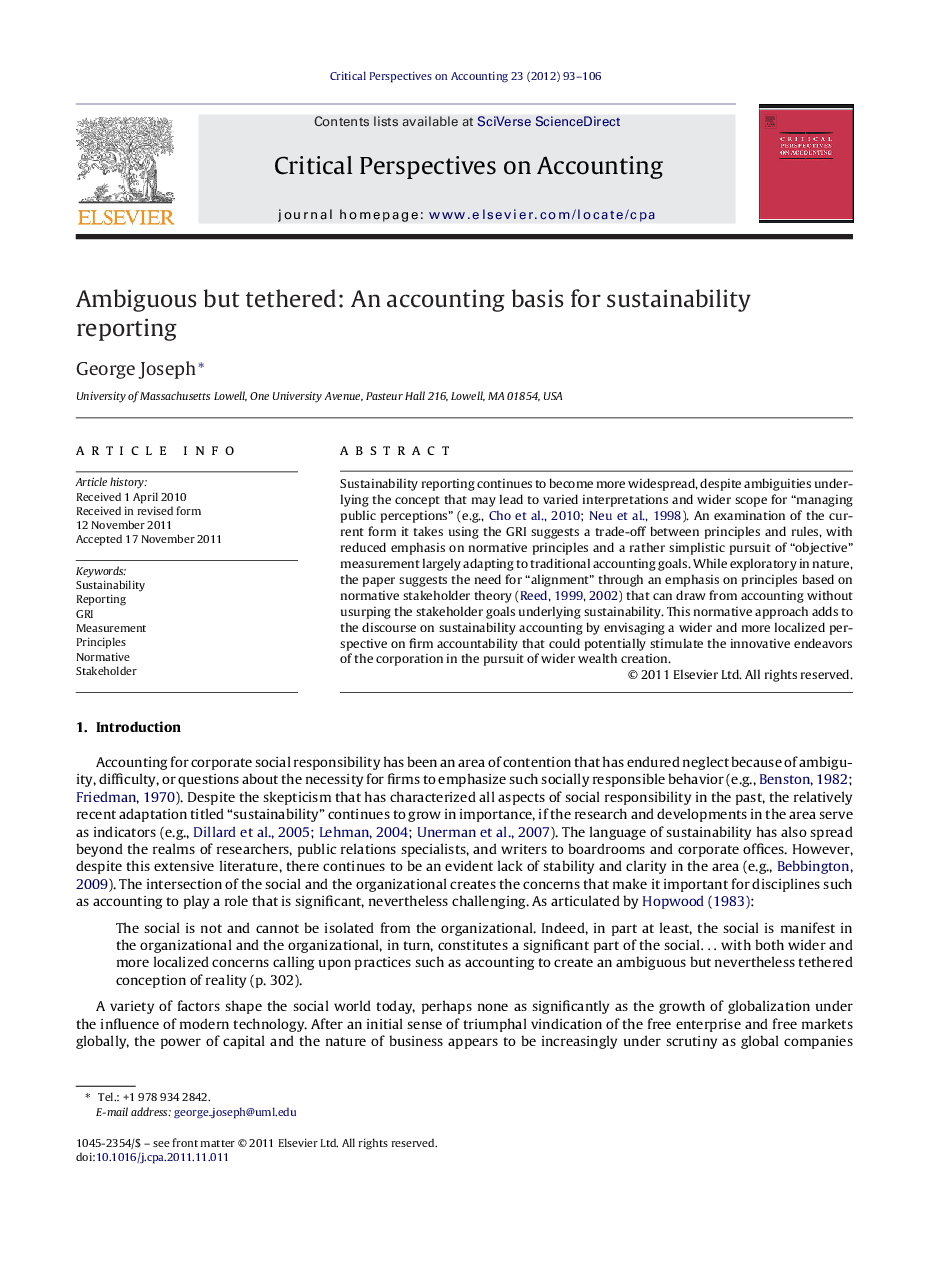| Article ID | Journal | Published Year | Pages | File Type |
|---|---|---|---|---|
| 1000116 | Critical Perspectives on Accounting | 2012 | 14 Pages |
Sustainability reporting continues to become more widespread, despite ambiguities underlying the concept that may lead to varied interpretations and wider scope for “managing public perceptions” (e.g., Cho et al., 2010 and Neu et al., 1998). An examination of the current form it takes using the GRI suggests a trade-off between principles and rules, with reduced emphasis on normative principles and a rather simplistic pursuit of “objective” measurement largely adapting to traditional accounting goals. While exploratory in nature, the paper suggests the need for “alignment” through an emphasis on principles based on normative stakeholder theory (Reed, 1999 and Reed, 2002) that can draw from accounting without usurping the stakeholder goals underlying sustainability. This normative approach adds to the discourse on sustainability accounting by envisaging a wider and more localized perspective on firm accountability that could potentially stimulate the innovative endeavors of the corporation in the pursuit of wider wealth creation.
